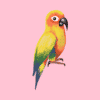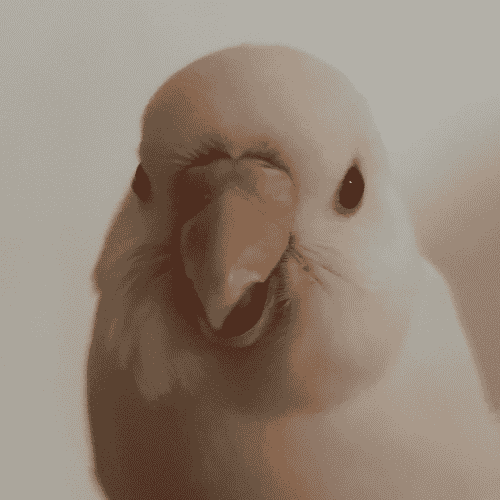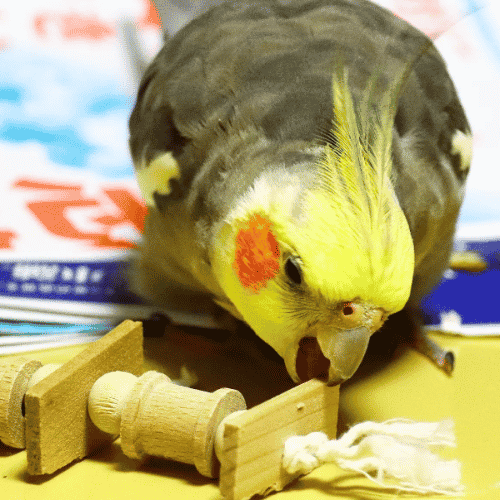Pet owners always want to do everything they can for their animals. One of the most common questions asked by bird keepers is whether they should give mineral blocks to their birdies.
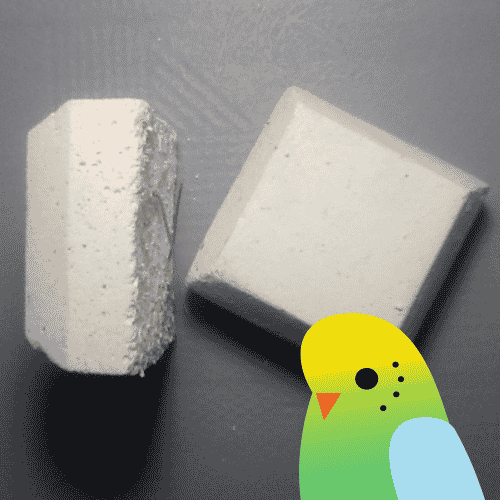
In this post, we discuss how beneficial and safe mineral blocks are, what they are made of, how they compare with cuttlebone, and everything else you should know about them.
Mineral Block for Birds – A Complete Guide
If you are new to bird keeping, you might have wondered why there is a block kept inside so many cages. These are mineral blocks put in the cage to ensure the bird receives enough nutrients to grow and function optimally. Mineral blocks are designed to be easy to hang on the cage bars so that the bird can access them whenever it wants.
A mineral block is essentially a supplement formulated carefully with a blend of vitamins, minerals, calcium, and other nutrients. They are generally used to supplement the diet of birds that require additional care or those who live in an environment where essential minerals and vitamins are not available easily. Other birds are given this block to prevent any deficiency and keep them healthy. It is an excellent way to ensure your birdie gets all the nutrients it needs on a daily basis.
Do Birds Kiss – Bird Behavior Explained
Are Mineral Blocks Good For Birds?
A diet consisting of fruits, vegetables, and seeds should help fulfill a bird’s nutritional needs for optimal health and well-being. However, supplementing their diet with some minerals and calcium ensures they are never at risk of deficiencies. A mineral block is an amazing way to make sure your pet gets a daily dose of essential minerals and vitamins.
The best thing about mineral blocks is that they are made specifically for birds which means the ingredients are tailored to their body which is why there is no worrying about giving them too many calories or overdosing on the nutrients. The constituents and their amount in the mineral block cater to the dietary needs of birds.
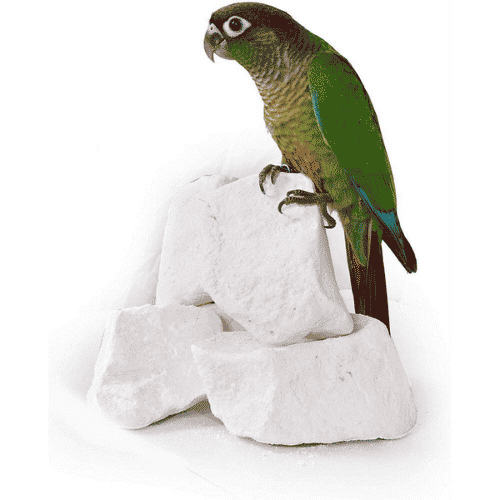
A mineral block is easy to administer as the texture is specially curated for birds. You can put the block on the perch or in the cage to let it consume it at any time of the day. It also helps it groom the beak throughout the day. The primary benefit of a mineral block over other forms of supplement is that it doesn’t need to nibble at it with food; it can do so whenever it feels like it.
Signs Your Bird Trusts You
Mineral Blocks for Birds Ingredients
Mineral blocks for birds are available in a great variety from several brands and can be found at pet stores. However, not all of them contain the same ingredients, so you want to check the ingredient list before getting one for your pet. See that the product you buy contains no artificial colors, additives, preservatives, or other artificial ingredients.
Most mineral blocks for birds are formulated out of ingredients like cuttlefish bone, oyster shells, calcium, egg protein, bird grit, charcoal, and others. Though the ingredients can vary between products and brands, most are constituted using a blend of natural sources of calcium and minerals. Moreover, these ingredients are chosen to be safe and digestible for birds, so there is no risk of any side effects.
Mineral Block vs Cuttlebone – How Do They Differ?
A cuttlebone is a naturally occurring supplement coming from the bone of the cuttlefish, an octopus-like cephalopod. Cuttlebones are often given to birds as a dietary supplement, a way to trim the beaks, an aid for increasing jaw strength, and a source of entertainment. The bone contains calcium and trace minerals like iron, zinc, magnesium, and potassium.
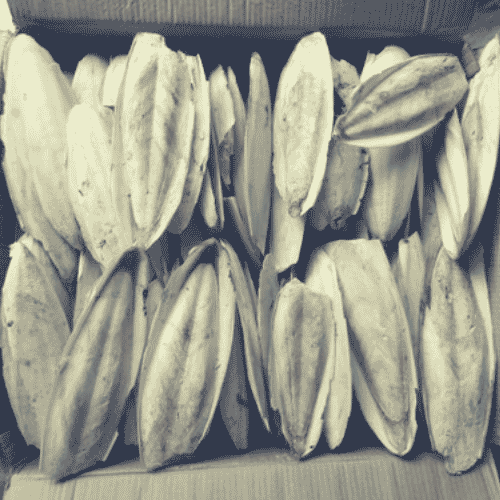
Mineral blocks resemble cuttlebone to a great extent as they serve a similar function of supplying additional nutrients to birds for their well-being. Some mineral blocks even contain cuttlebone as an ingredient for their calcium content. However, these blocks also have other natural sources of minerals and vitamins as well as binding elements.
Both cuttlebone and mineral block come with clips to hang on the side of the cage all the time and help supplement the bird’s diet and keep it entertained. Whether you get a mineral block or cuttlebone for your pet depends on your personal preferences but a mineral block is a better choice as it has a higher concentration of essential minerals and is specially designed to suit birds.
Calcium Mineral Blocks for Birds – What You Should Know?
Calcium mineral blocks are designed to provide a convenient way for pet owners to give their birdies an option to consume extra calcium and minerals if they need them. These blocks are formulated with vitamins and trace nutrients to supplement the birds’ diet and keep them from developing any deficiency. These products also have the additional advantage of keeping their beaks in good shape.
Calcium mineral blocks are particularly useful for bird varieties prone to calcium deficiencies and female birds as they need extra calcium to lay eggs. An important thing pet owners should know about calcium mineral blocks is that they are dietary supplements and not a source of food. Your bird needs a variety of food and treats throughout the day to support its function. These blocks can be added to the cage as an optional source of nutrients; the bird can consume them when it feels like it.
You can expect your birdie to ignore the calcium mineral block for days before it gets fond of chewing on it. Clip it to the cage and leave it even if the bird is not interested. It will eventually get ready to nibble at the block to get some calcium and minerals and benefit its beak health and shape.
Understanding Cockatiel Beak Grinding – A Complete Guide
Final Thoughts
Mineral blocks are an excellent way to ensure your pet bird receives essential vitamins, minerals, and calcium for its health and function. It is advisable to get a few of these and leave them in the bird’s cage. However, they should not be used as a meal replacement; your bird should be given nutritious food on a daily basis. Also, ensure that the mineral block you choose contains only natural ingredients and is free of any chemicals and additives.

Doctor of Veterinary Medicine (D.V.M.) at Nation Taiwan University,Master of Science (M.S.) in Biomedical Engineering at National Taiwan University of Science and Technology


